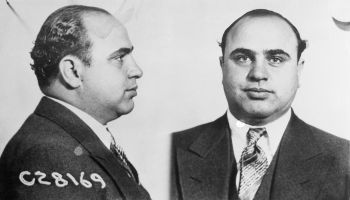VIA THE GAZETTE:
Prohibition, meet the “textaholic.”
Largo-area young and old alike in the habit of clutching their phones while behind the wheel, poised to send a text or update their Facebook or Twitter status at any moment, may still be getting used to a new ban on texting while driving. But many agree the ban is a good idea and will improve road safety— if enforced.
Prince George’s Community College sophomore Taj Diggs, 19, of Lanham said Friday at the Largo school that he thinks the new law will help decrease the number of car accidents.
“There’s a lot of death due to texting,” said Diggs, who said he usually only sends text messages at red lights, which is safer but now illegal.
PGCC freshman Diamond Steptoe, 17, of Greenbelt said Friday the law is a good idea but likely won’t stop everyone from texting.
“It’s going to stop some people from texting, but some people are going to do what they want to, regardless,” said Steptoe, who said she refrains from texting while driving.
On Oct. 1, a new state law went into effect that makes typing or sending text messages while driving illegal and a misdemeanor punishable by a fine of up to $500. Maryland is now one of 12 states that have banned texting while driving; six additional states will prohibit the practice by January.
Under current state law, it’s illegal for drivers under age 18 with a provisional license to use a cell phone for any reason, except for an emergency call.
Richard Johnson, the manager for Arrive Alive Driving School in Largo, said the new law isn’t strict enough for teenagers — he says that in addition to the fine, teenage drivers under age 18 should lose their driving privileges for six months.
“I think they’ll take it serious once the law starts hitting them — with the fine or if they know of a friend who lost their life in relation to texting [while driving],” he said.
County Councilman Eric Olson (D-Dist. 3) of College Park said the law is a good way to help decrease the number of distracted drivers. “It only makes sense,” he said.
Patrick Peterson, 43, of Largo, a freshman business administration student at PGCC, said he is a non-texter who thinks the new law could prevent accidents, but it’s hard to enforce.
“I don’t think people will abide, [and] it’s hard to police,” he said.
Andrew Bluestein, 49, of Germantown and a professor of allied health at PGCC said he is a retired paramedic who has seen many severe and fatal accidents because of people who were sending text messages while driving.
“Enforcement is going to be an issue,” he said. “Laws have to catch up with technology.”
But Prince George’s County police said they don’t anticipate that this new law will be hard to enforce.
“It’s going to deter a lot of potential accidents and put the responsibility on the driver to be focused on the task at hand in terms of driving and be more aware of their fellow drivers [and] passengers that may also be in the car — kids,” said Pfc. Larry Johnson, spokesman for the Prince George’s County Police Department.
Lora Rakowski, a spokeswoman for the Maryland State Highway Administration, said anything that enhances driver attentiveness is a good, preventative measure for crash prevention.
“The law sends a message — texting is a hazard and can distract drivers,” Rakowski said.
Rakowski said that on Maryland roads last year, 550 people of the 592 people killed in traffic crashes — 93 percent — died because of driver error, which includes texting while driving, among other things.
Despite those numbers and the new laws, PGCC student Terrance Burke, 20, of Bowie said he constantly sends and receives text messages and that the chances of police catching him are “low.”
“I’ll be texting for the rest of my life,” he said.
- Egypt: Entertainment, Food, Languages, Places To Visit + More
- Libya: Entertainment, Food, Languages, Places To Visit + More
- South Sudan: Entertainment, Food, Languages, Places To Visit + More
- Algeria: Entertainment, Food, Languages, Places To Visit + More
- Tunisia: Entertainment, Food, Languages, Places To Visit + More














